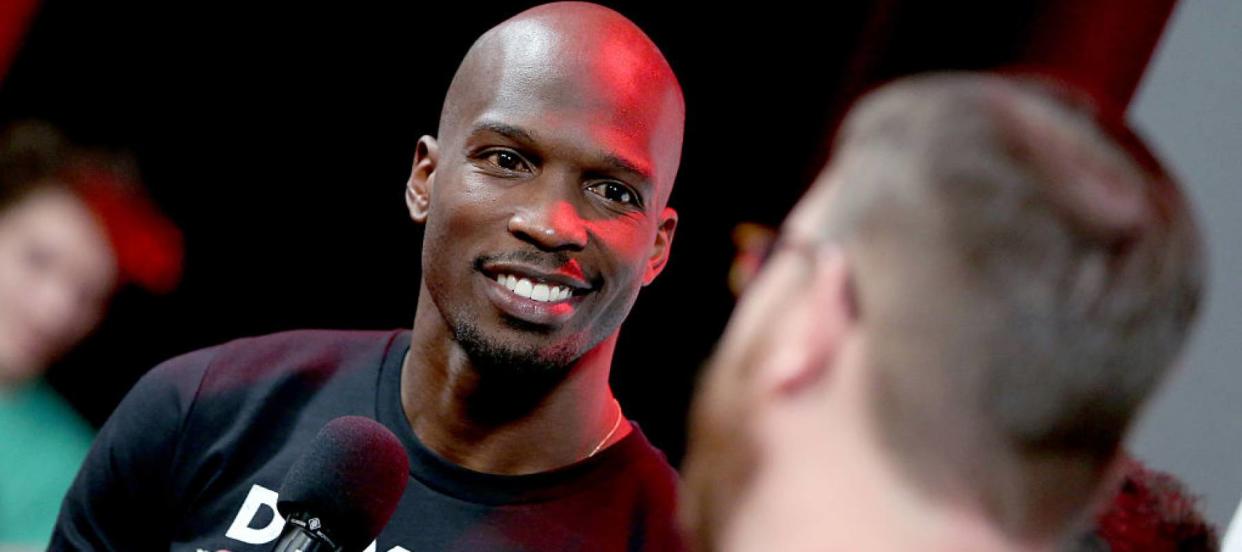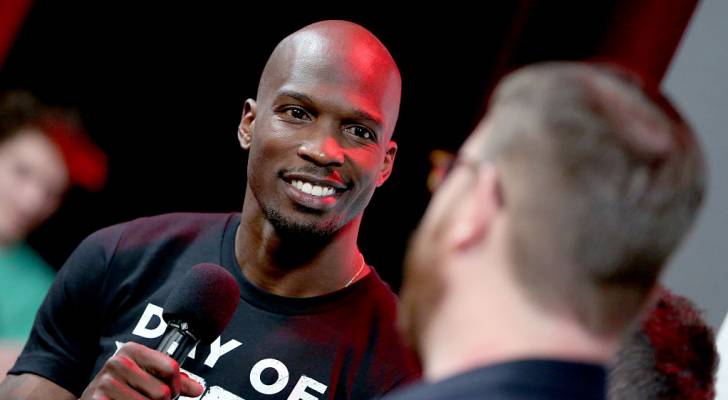
There’s nothing money can buy that’s bigger than your name — at least that’s what retired NFL star Chad Johnson, who wore the number 85 and went by the nickname “Ochocinco,” told Fox Sports host Shannon Sharpe when explaining his frugal spending habits.
“Why am I driving a Rolls Royce when I’m Ocho? Why am I buying a $50,000-$80,000 watch? Time is free, so what am I paying for?” he asked on the Club Shay Shay podcast. “There’s nothing I can buy that’s bigger than my name alone.”
Don’t miss
The former wide receiver for the Cincinnati Bengals and the New England Patriots made close to $49 million over 11 NFL seasons, according to Spotrac — and using his unique money mindset, he claims to have saved 83% of that astonishing total.
What makes Johnson’s money management extra impressive? Many iconic NFL stars have gone broke after falling prey to the league’s extravagant spending culture and other financial challenges like divorce or suffering a career-ending injury.
Ochocinco wore fake jewelry from Claire’s, only ever leased his exotic cars and flew on budget airlines to save money. He even admitted to living in the Bengals’ stadium for two years so he didn’t have to rent or buy a house.
“Everybody’s caught up in image, looking a certain way and being rich,” he said. “It’s pointless.”
While your career earnings may pale in comparison to Ochocinco’s cool $49 million, here are five ways to preserve and build your wealth at an all-star level.
Understand the game plan
For NFL stars and those of us sitting and watching football at home, one of the first steps to financial security is “understanding your cash flow deeply,” according to Mike Olivia, a registered financial adviser with the NFL. In addition to that role Olivia is a senior partner of West Pac Wealth Partners and the head of strategy at the Olivia Team Virtual Family Office.
He says it’s essential to know how much money you have coming in, how much you’re spending, how much goes to debt and taxes, and how much you have left over for saving and investing.
Olivia encourages NFL players to “run their career as if it’s a business,” which means they need to understand financial statements like the balance sheet, income statements, cash flow and equity.
“What’s necessary [is] to understand how to operate like an entrepreneur. That knowledge is key,” he says — and that level of financial literacy is just as important for the average American as it is for wealthy athletes.
Watch now: Moneywise Q&A with NFL certified financial advisor Mike Olivia
Save like Ocho
When it comes to saving, NFL players have a one-up on their fans. Most footballers retire from the league by the time they’re 30, long before the average U.S. retirement age of 64, which means they have less time to save and put their money to work. However, if they’re able to put away a good chunk of their earnings, that also gives their money more time to grow.
According to Olivia, the optimum savings rate — the percentage of gross income you can save — is 20%. Still, most people struggle to save even 5% due to ongoing expenses like mortgages, insurance, and paying off loans.
“With professional athletes, because they’re generating so much of their lifetime earnings in a short period of time, they may be able to save 80% of that income,” Olivia explained.
With that much money tied up in savings, NFL stars can really capitalize on compound interest.
Johnson said no to sports cars and bling to save much of his career earnings. Like the NFL star, you might want to consider expenditures you can say no to.
Put your money to work
How do rich people get rich — beyond inheriting money or landing a cash windfall like freshly-drafted NFL players?
“It’s business ownership, it’s having some interest in a business (whether it’s your own or another) such as stock options, RSUs, or some other ownership of stock,” says Olivia. “Or it’s likely to be real estate, or some passive income vehicle.”
“If I think about an NFL athlete … how do we create it so that they’re utilizing holding tanks or financial vehicles that are beneficial, that generate yield, that are safe [and] liquid so that [they] have access to capital to then be able to generate passive income ultimately when they’re no longer in the League?”
While you may not consider yourself rich, it’s still worth accumulating assets (if you can) to help you reach your long-term financial ambitions.
Read more: This janitor in Vermont built an $8M fortune without anyone around him knowing. Here are the 2 simple techniques that made Ronald Read rich — and can do the same for you
Play defense
Insurance doesn’t have to be a grudge purchase. It can protect you from unexpected financial losses and help you to live more confidently in everyday life.
With NFL stars, a career-ending injury is common, says Olivia, which is why he advises players to buy disability insurance.
“Their income, bonuses, performance-based compensation — all of those things can be insured, but a lot of these athletes don’t have the time [to think about personal risk management],” he says.
“They also think, at some level, that they’re indestructible because that’s the mindset you have to have to make it into the league. [But having] protection to play that defense is key.”
Another layer of defense is excess liability insurance. If you get into a car accident, a lawsuit, or a guest slips and falls on your property, this coverage will step up when the liability coverage of your other policies, like home and auto, has been exhausted.
Finally, life insurance is not only helpful due to the death benefit — Olivia says it can also be “a wonderful asset class” while you’re living because of the financial features many policies have.
Get advice from a coach
Spur-of-the-moment financial decisions driven by FOMO — fear of missing out — do not always end well.
Olivia says it’s better to take a step back and calculate the risks, perhaps with the help of a mentor or a financial professional.
He offers the example of NFL stars engaging the right CPA firm. “Having the right accounting professional and accounting advice is really key … being able to avoid state income tax — there are ways to do that.”
Legal advice is just as important, he added, in terms of setting up trusts, estate plans and maybe even prenuptial agreements to protect assets in a way that no one can touch them.
What to read next
This article provides information only and should not be construed as advice. It is provided without warranty of any kind.


